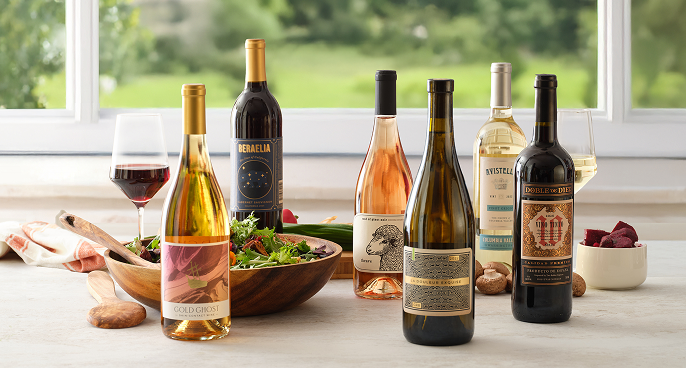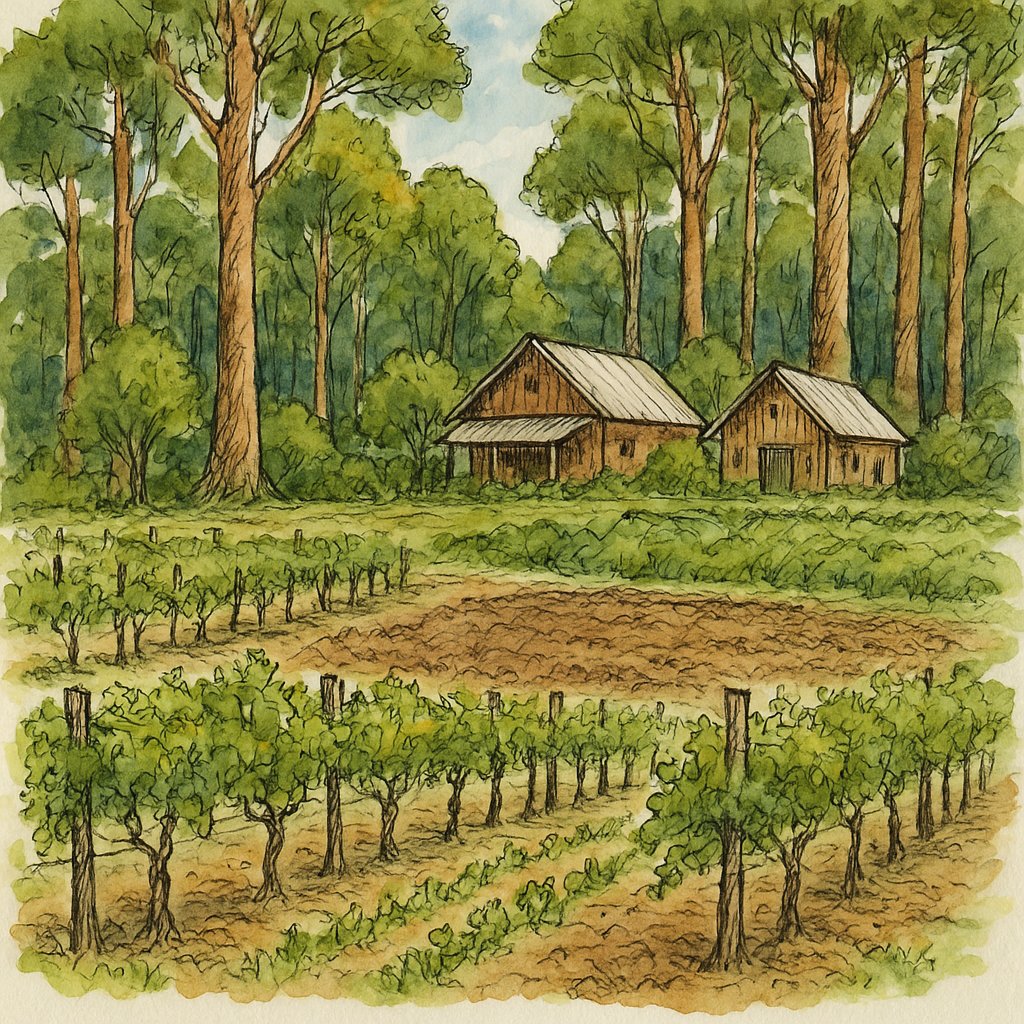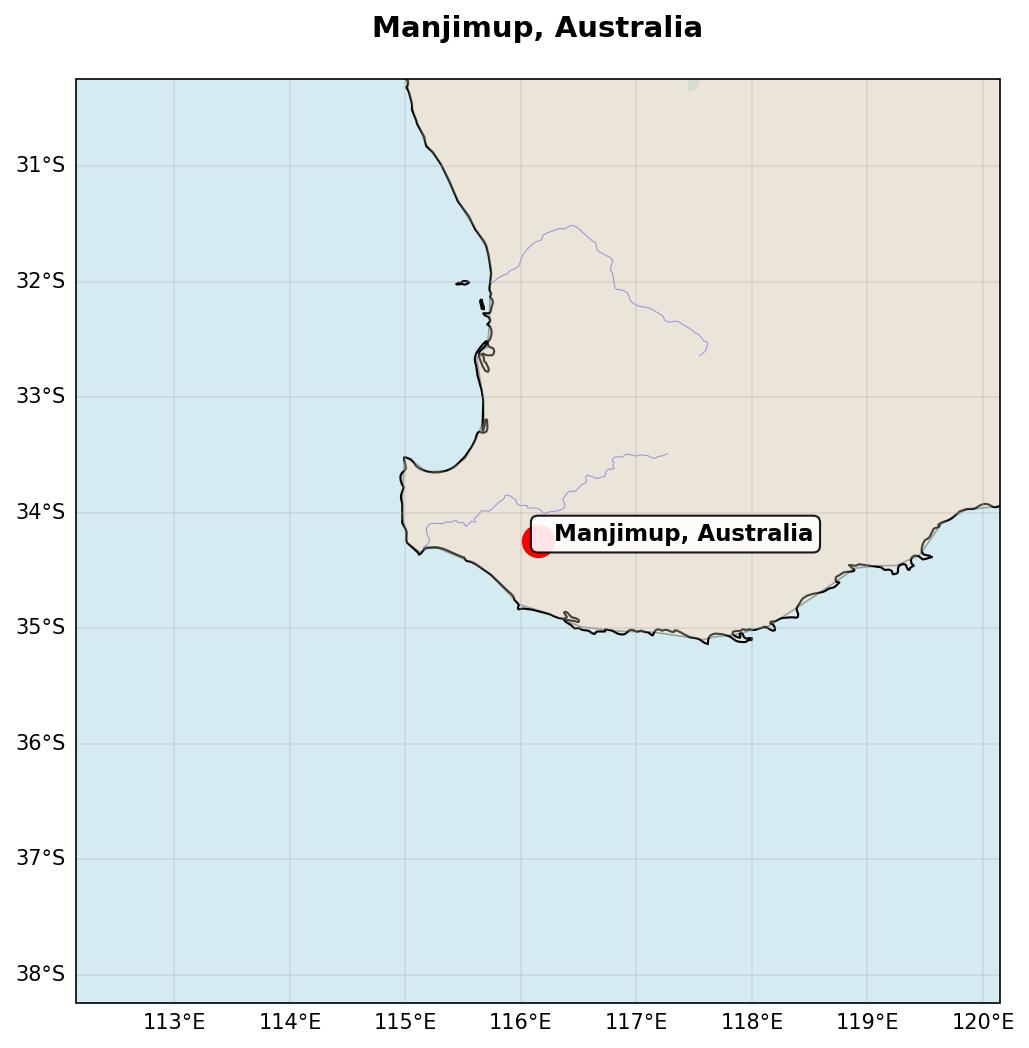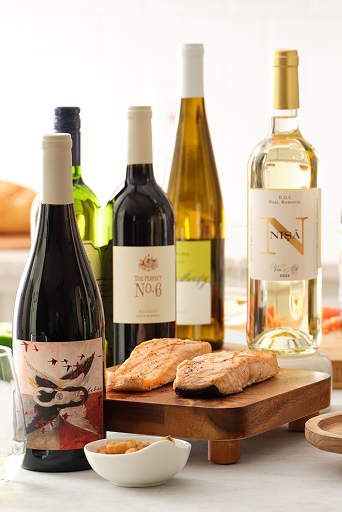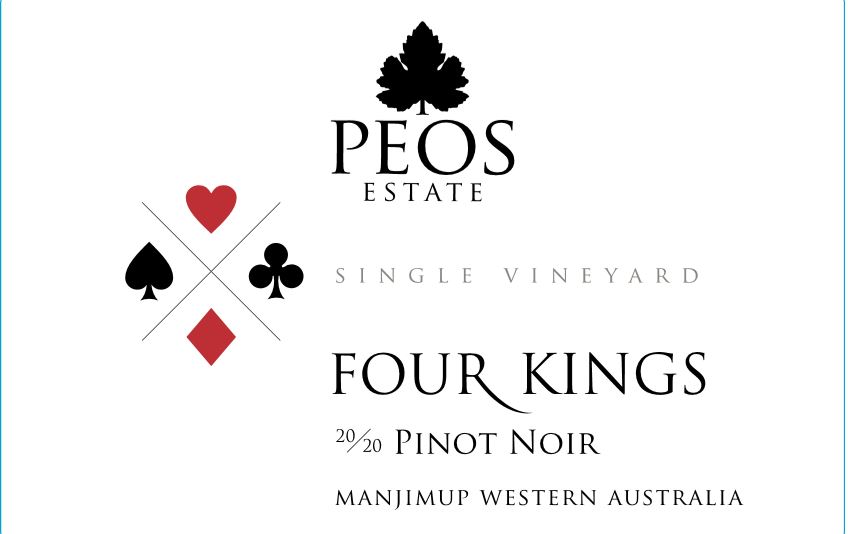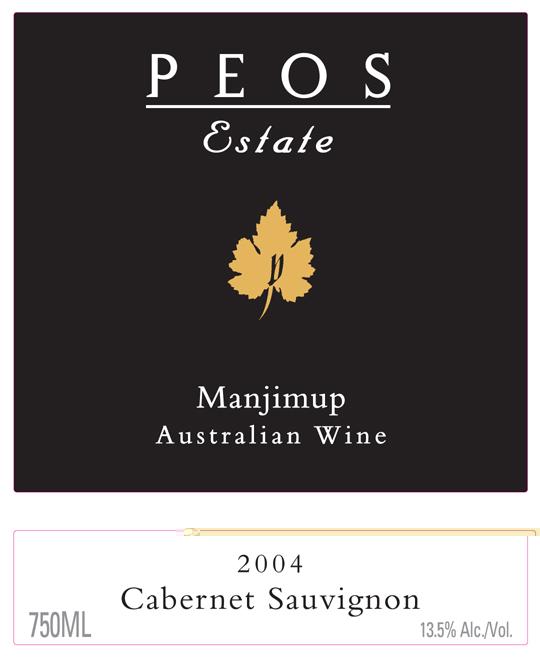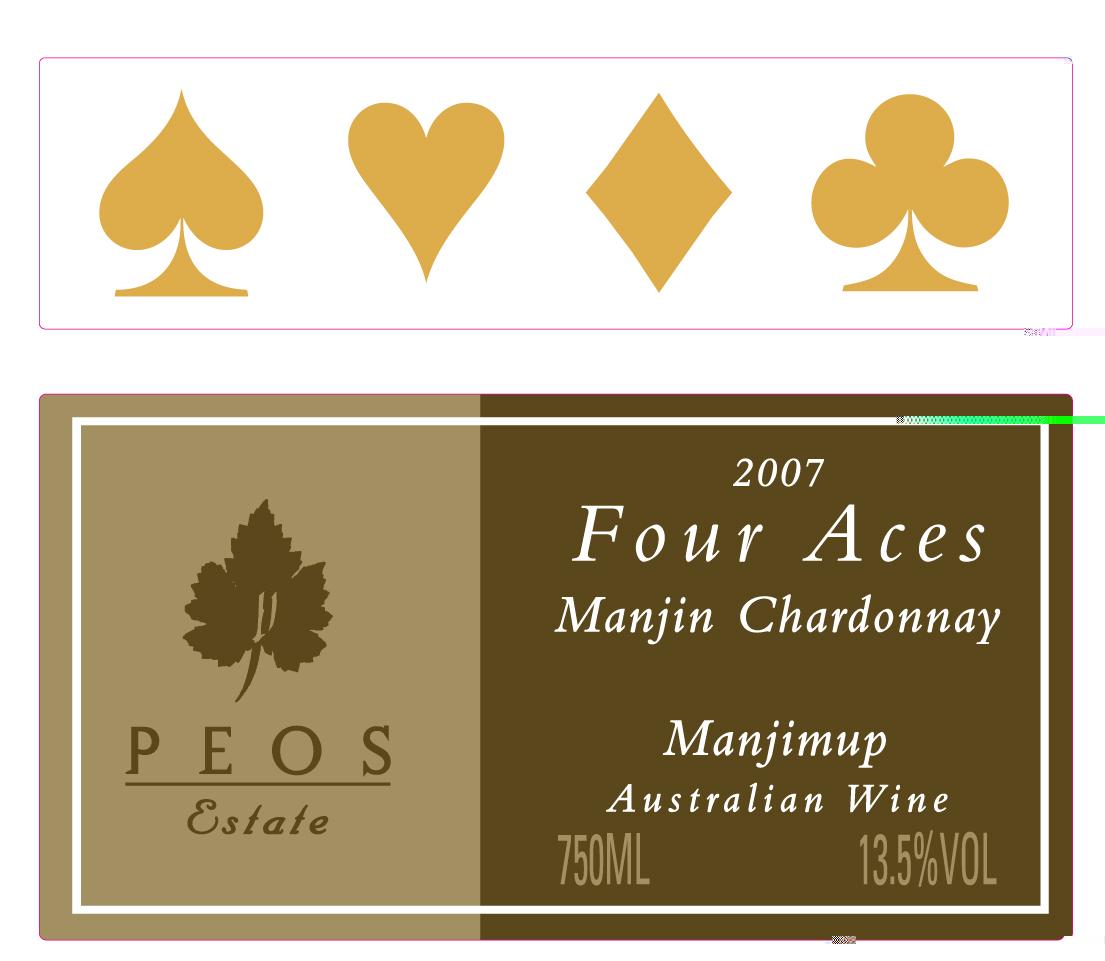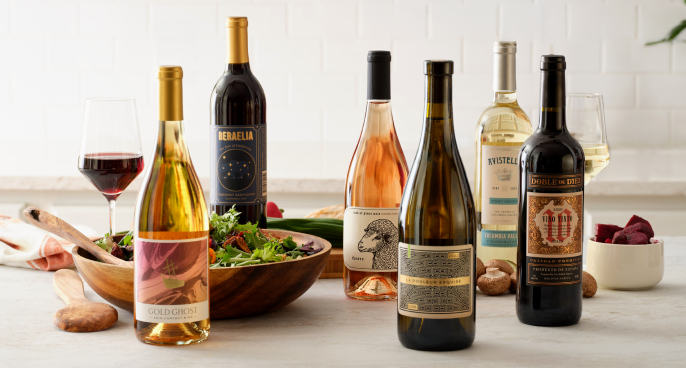Terroir of Manjimup
Manjimup enjoys a cool-temperate climate, with inland breezes from the Indian and Southern Oceans softening its weather. This creates steady temperatures during the ripening season, while cold, wet winters let the vines rest. The region gets 230–240 mm of rain during the growing season, which helps the vines grow strong.
Located at 100 to 350 meters in elevation, Manjimup's vineyards are nestled among lush forests that help reduce heat stress. In the summer, average temperatures of 20–21 °C in January allow grapes to mature slowly, enhancing their aroma and flavor.
The soils, mainly gravelly, iron-rich red loams, and gravelly sands, are well-drained and low in nutrients, encouraging deep roots. This terroir, alongside the balanced climate, supports full grape ripening while keeping bright acidity, adding to the wines' intensity and freshness.
Notable Wineries in Manjimup
In Manjimup, the wineries reflect the region's commitment to quality and craftsmanship, with a focus on small-scale, boutique production. Here are a few notable producers contributing to this dynamic wine scene:
-
Chestnut Grove: Known for their elegant Cabernet blends and vibrant Chardonnay, showcasing the region's cool-climate characteristics.
-
Peos Estate: A family-run winery that excels in crafting well-structured Shiraz and Merlot, highlighting Manjimup's unique terroir.
-
Bellarmine Wines: Renowned for their bright and aromatic Verdelho, alongside limited-edition Pinot Noir exploring the grape's potential in this area.
These wineries, though small in scale, contribute significantly to the reputation of Manjimup, producing wines that speak to the heart of this lush and fertile region.
Sustainable Winemaking in Manjimup
In Manjimup, sustainability is at the heart of winemaking. The region's cool-temperate climate and ample winter rainfall reduce the need for irrigation and chemical interventions, aligning perfectly with eco-friendly practices. Local winegrowers champion soil health by using cover crops, green manures, and minimized tillage. They also prioritize the preservation of surrounding karri forests, which play a crucial role in maintaining biodiversity and reducing heat stress.
Solar power, rainwater collection, and recycling initiatives are common, reflecting the community's commitment to reducing environmental impact. This holistic approach ensures that every aspect, from vineyard to bottle, supports the long-term health of the land. By nurturing their unique terroir with sustainable methods, Manjimup's producers continue to craft wines that embody the region's natural beauty and vibrant character.
Wine Tourism in Manjimup
Wine tourism in Manjimup blends nature and viniculture seamlessly, offering an enriching experience amid its picturesque landscape. Visitors can indulge in wine tastings at cellar doors set against the backdrop of serene farmland and lush forests. The region is renowned for its fresh, local produce, including apples and black truffles, which enhance the culinary experience. Manjimup's seasonal events, such as the winter truffle festival, offer unique activities like truffle hunts and local wine pairings.
-
Wine Tastings: Enjoy crisp Chardonnays and elegant Cabernet–Merlot blends.
-
Local Produce: Savor dishes featuring apples and black truffles.
-
Outdoor Activities: Explore karri forests through bushwalking and cycling.
-
Seasonal Events: Participate in the annual truffle festival with wine and food stalls.

